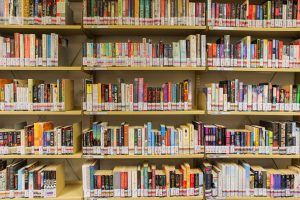The Trials of the Progressive: Malay Literary and Cultural Expressions in Singapore
November 22, 2021

Literature, one of the most important cultural and intellectual expressions of the Malays, plays a highly important role which cannot be overlooked. Progressive religious and cultural ideas are more often expressed through literature than mainstream religious discourse.
In ‘The Trials of the Progressive: Malay Literary and Cultural Expressions in Singapore’, a chapter in Alternative Voices in Muslim Southeast Asia: Discourses and Struggles (2019), Dr Azhar Ibrahim (NUS Department of Malay Studies) puts forth the notion that beyond just dissecting texts, the examination of historical and sociological dynamics is necessary when studying literature. This is since writers often use literary mediums to annunciate and denunciate ideas pertaining to the interests and concerns of the community.
While progressive ideas are sometimes articulated in literature, not all literary expressions are progressive in nature. For progressive ideas to be included in a writer’s literature, the writer needs to first be exposed to critical and reformist perspectives present in society. According to sociological literary theory, a progressive writer is shaped more by the kinds of ideas they are exposed to in the environment around them than their innate artistic talent. Progressive writers are thus a minority in Singapore. However, their contributions cannot be underestimated. Reformists such as Al-Hadi, who was born on the 22nd of November, 1867, and Sheikh Tahir Jalaluddin, confronted religious traditionalists and brought progressive thought into the public sphere through their publications and novels. They called for the application of human reasoning, by encouraging the adoption of important issues like modern education for both boys and girls. The regular presence of Hamka, a leading proponent of reforms from Indonesia, also advanced the proliferation of progressive ideas in Singapore. With the post-war Malay movie industry being centred in Singapore, more writers, performance artists, and musicians emerged as well.
Apart from the presence of greater religious reformist spirit among the community at that time, the introduction of these new literary mediums also led to Malay nationalism gaining momentum. After Singapore’s separation from Malaysia, Malay writers emerged as the moral and intellectual voice of the Malay community, as other groups such as the religious elites, professionals, and teaching fraternities were no longer vocal in raising their views on the challenges facing Malays in Singapore. In the context of community and nation-building, through their respective literary mediums, writers would encourage Malays to adapt to the demands of the global economy while preserving the cultural and religious identity of the minority group.
Considering how religious interest and religious discourses are expanding within the Malay Muslim community, Dr Azhar argues that is important that religious circles receive literary exposure. In the absence of or with only a limited space for critical discourse to be articulated in the Malay community, the literary medium becomes the best site for progressive ideas to be articulated. Literary works should be recognised beyond their aesthetic merit, as important documents that reflect societal conditions. Therefore, leaving literary development to its own course is unwise and cultural planning and vision should be undertaken.
Read the chapter here.
